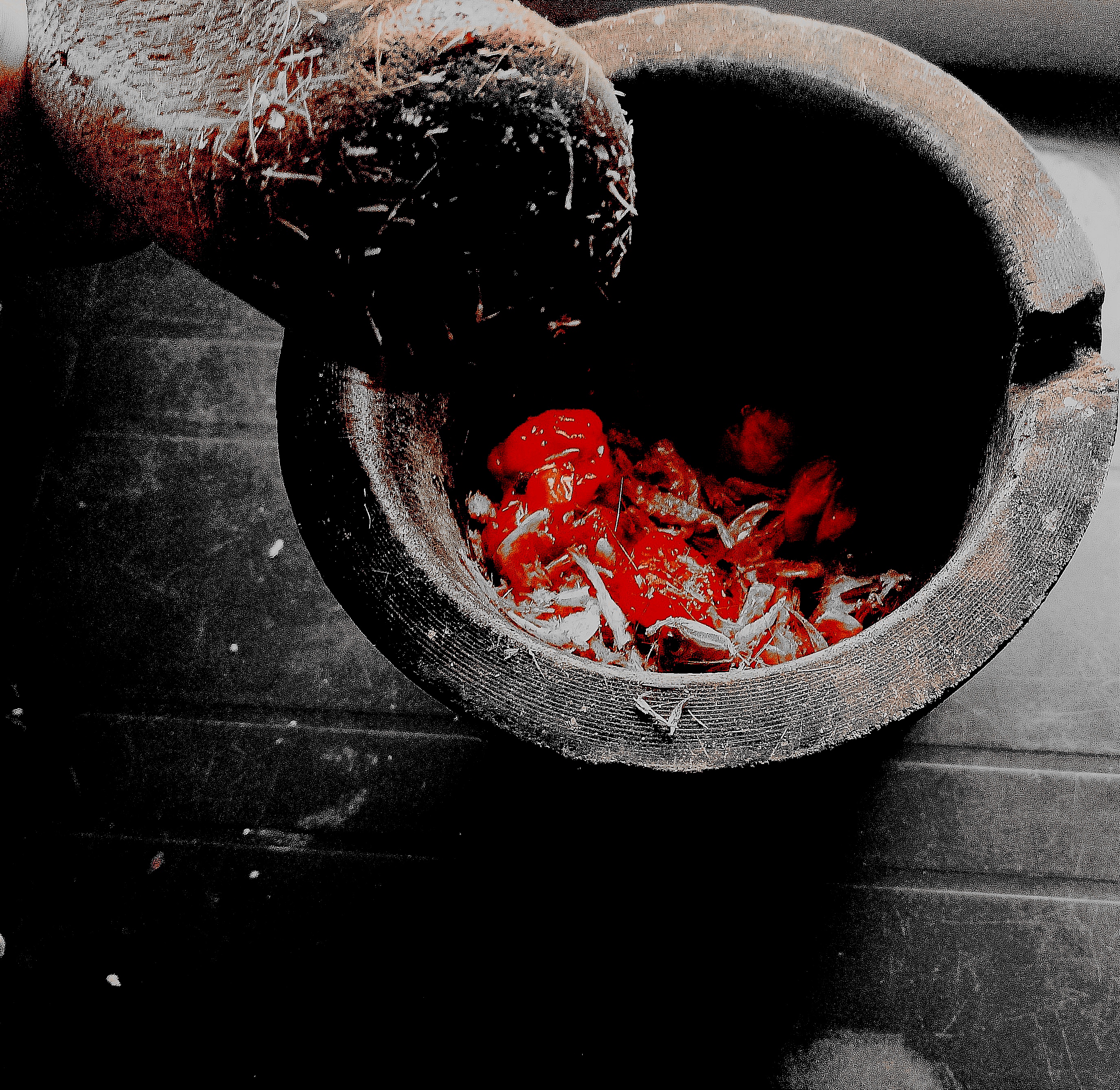|
Chrysopogon Nigritanus
''Chrysopogon nigritanus'', more widely known by the taxonomic synonym ''Vetiveria nigritana'', or the common name black vetivergrass, is a perennial grass species of the family Poaceae and therefore is also a monocotyledon. Champagnant ''et al.'' (2007), p. 488. More specifically, ''Vetiveria nigritana'' is a very thick and tall type of grass that is deeply rooted within the ground and is usually used to protect crops and deter soil erosion. ''Vetiveria nigritana'' is also a native species to Africa and is most commonly seen in Nigeria, Northern Africa, Eastern Africa and tropical parts of Southern Africa. In addition, the plant, like other vetiver grasses, has been used in these regions due to its extreme drought tolerance, ability to grow in infertile soil and the fact that it can live under complete submergence. Grimshaw (1994), p. 44. In fact, ''Vetiveria nigritana'' can thrive in a very diverse range of environmental and climatic conditions. ''Vetiveria nigritana'' is a v ... [...More Info...] [...Related Items...] OR: [Wikipedia] [Google] [Baidu] |
Benth
George Bentham (22 September 1800 – 10 September 1884) was an English botanist, described by the weed botanist Duane Isely as "the premier systematic botanist of the nineteenth century". Born into a distinguished family, he initially studied law, but had a fascination with botany from an early age, which he soon pursued, becoming president of the Linnaean Society in 1861, and a fellow of the Royal Society in 1862. He was the author of a number of important botanical works, particularly flora. He is best known for his taxonomic classification of plants in collaboration with Joseph Dalton Hooker, his ''Genera Plantarum'' (1862–1883). He died in London in 1884. Life Bentham was born in Stoke, Plymouth, on 22 September 1800.Jean-Jacques Amigo, « Bentham (George) », in Nouveau Dictionnaire de biographies roussillonnaises, vol. 3 Sciences de la Vie et de la Terre, Perpignan, Publications de l'olivier, 2017, 915 p. () His father, Sir Samuel Bentham, a naval architect, was t ... [...More Info...] [...Related Items...] OR: [Wikipedia] [Google] [Baidu] |
Surface Runoff
Surface runoff (also known as overland flow) is the flow of water occurring on the ground surface when excess rainwater, stormwater, meltwater, or other sources, can no longer sufficiently rapidly infiltrate in the soil. This can occur when the soil is saturated by water to its full capacity, and the rain arrives more quickly than the soil can absorb it. Surface runoff often occurs because impervious areas (such as roofs and pavement) do not allow water to soak into the ground. Furthermore, runoff can occur either through natural or man-made processes. Surface runoff is a major component of the water cycle. It is the primary agent of soil erosion by water. The land area producing runoff that drains to a common point is called a drainage basin. Runoff that occurs on the ground surface before reaching a channel can be a nonpoint source of pollution, as it can carry man-made contaminants or natural forms of pollution (such as rotting leaves). Man-made contaminants in runoff i ... [...More Info...] [...Related Items...] OR: [Wikipedia] [Google] [Baidu] |
Cassava
''Manihot esculenta'', common name, commonly called cassava (), manioc, or yuca (among numerous regional names), is a woody shrub of the spurge family, Euphorbiaceae, native to South America. Although a perennial plant, cassava is extensively cultivated as an annual agriculture, crop in tropical and subtropical regions for its edible starchy tuberous root, a major source of carbohydrates. Though it is often called ''yuca'' in parts of Spanish America and in the United States, it is not related to yucca, a shrub in the family Asparagaceae. Cassava is predominantly consumed in boiled form, but substantial quantities are used to extract cassava starch, called tapioca, which is used for food, animal feed, and industrial purposes. The Brazilian farinha, and the related ''garri'' of West Africa, is an edible coarse flour obtained by grating cassava roots, pressing moisture off the obtained grated pulp, and finally drying it (and roasting both in the case of farinha and garri). Cassav ... [...More Info...] [...Related Items...] OR: [Wikipedia] [Google] [Baidu] |
Traditional African Medicine
Traditional African medicine is a range of traditional medicine disciplines involving Indigenous peoples of Africa, indigenous herbalism and Traditional African religions, African spirituality, typically including divination, diviners, midwives, and herbalism, herbalists. Practitioners of traditional African medicine claim to be able to cure a variety of diverse conditions including cancer, psychiatric disorders, high blood pressure, cholera, most venereal diseases, epilepsy, asthma, eczema, fever, anxiety, depression, benign prostatic hyperplasia, urinary tract infections, gout, and healing of wounds and burns and even Ebola. Diagnosis is reached through spiritual means and a treatment is prescribed, usually consisting of a herbal remedy that is considered to have not only healing abilities but also symbolic and spiritual significance. Traditional African medicine, with its belief that illness is not derived from chance occurrences, but through spiritual or social imbalance, dif ... [...More Info...] [...Related Items...] OR: [Wikipedia] [Google] [Baidu] |
Essential Oils
An essential oil is a concentrated hydrophobic liquid containing volatile (easily evaporated at normal temperatures) chemical compounds from plants. Essential oils are also known as volatile oils, ethereal oils, aetheroleum, or simply as the oil of the plant from which they were extracted, such as oil of clove. An essential oil is essential in the sense that it contains the essence of the plant's fragrance—the characteristic fragrance of the plant from which it is derived. The term "essential" used here does ''not'' mean indispensable or usable by the human body, as with the terms essential amino acid or essential fatty acid, which are so called because they are nutritionally required by a living organism. Essential oils are generally extracted by distillation, often by using steam. Other processes include expression, solvent extraction, '' sfumatura'', absolute oil extraction, resin tapping, wax embedding, and cold pressing. They are used in perfumes, cosmetics, soaps, air ... [...More Info...] [...Related Items...] OR: [Wikipedia] [Google] [Baidu] |
Insect Repellent
An insect repellent (also commonly called "bug spray") is a substance applied to skin, clothing, or other surfaces to discourage insects (and arthropods in general) from landing or climbing on that surface. Insect repellents help prevent and control the outbreak of insect-borne (and other arthropod-bourne) diseases such as malaria, Lyme disease, dengue fever, bubonic plague, river blindness, and West Nile fever. Pest animals commonly serving as vectors for disease include insects such as flea, fly, and mosquito; and ticks (arachnids). Some insect repellents are insecticides (bug killers), but most simply discourage insects and send them flying or crawling away. Nearly any would be fatal upon reaching the median lethal dose, but classification as an insecticide implies death even at lower doses. Effectiveness Synthetic repellents tend to be more effective and/or longer lasting than "natural" repellents. For protection against mosquito bites, the U.S. Centers for Diseas ... [...More Info...] [...Related Items...] OR: [Wikipedia] [Google] [Baidu] |
Rice
Rice is the seed of the grass species ''Oryza sativa'' (Asian rice) or less commonly ''Oryza glaberrima ''Oryza glaberrima'', commonly known as African rice, is one of the two domesticated rice species. It was first domesticated and grown in West Africa around 3,000 years ago. In agriculture, it has largely been replaced by higher-yielding Asian r ...'' (African rice). The name wild rice is usually used for species of the genera ''Zizania (genus), Zizania'' and ''Porteresia'', both wild and domesticated, although the term may also be used for primitive or uncultivated varieties of ''Oryza''. As a cereal, cereal grain, domesticated rice is the most widely consumed staple food for over half of the world's World population, human population,Abstract, "Rice feeds more than half the world's population." especially in Asia and Africa. It is the agricultural commodity with the third-highest worldwide production, after sugarcane and maize. Since sizable portions of sugarcane and ma ... [...More Info...] [...Related Items...] OR: [Wikipedia] [Google] [Baidu] |
Maize
Maize ( ; ''Zea mays'' subsp. ''mays'', from es, maíz after tnq, mahiz), also known as corn (North American and Australian English), is a cereal grain first domesticated by indigenous peoples in southern Mexico about 10,000 years ago. The leafy stalk of the plant produces pollen inflorescences (or "tassels") and separate ovuliferous inflorescences called ears that when fertilized yield kernels or seeds, which are fruits. The term ''maize'' is preferred in formal, scientific, and international usage as a common name because it refers specifically to this one grain, unlike ''corn'', which has a complex variety of meanings that vary by context and geographic region. Maize has become a staple food in many parts of the world, with the total production of maize surpassing that of wheat or rice. In addition to being consumed directly by humans (often in the form of masa), maize is also used for corn ethanol, animal feed and other maize products, such as corn starch and ... [...More Info...] [...Related Items...] OR: [Wikipedia] [Google] [Baidu] |
Babalola
Babalola is a Nigerian name of Yoruba origin meaning ''"Father is Wealth."'' or ''"Father is Honour or Prestige."'' that may refer to: * Afe Babalola (born 1929), Nigerian lawyer **Afe Babalola University founded by Afe Babalola *Isaac Babalola Akinyele (1882–1964), Nigerian royalty *Joseph Ayo Babalola (1904–1959), founder of the Christ Apostolic Church in Nigeria ** Joseph Ayo Babalola University * Solomon Babalola (1926–2008), Nigerian poet, author and scholar * Solomon Adeniyi Babalola (1929–2021), Veteran Nigerian Baptist Missionary/Evangelist, Church Pastor, Church Administrator, Denominational Leader, Theological Educator and Seminary Academic Affairs Director * Andrew Babalola (born 1961), Nigerian politician * Babalola B J, Nigerian Metallurgical and Materials Engineer *Babalola Borishade (born 1946), Nigerian politician *Chinedum Peace Babalola, Nigerian pharmacist *Charles Babalola (born 1990), British actor * Gideon Babalola (born 1994), Nigerian badminton player ... [...More Info...] [...Related Items...] OR: [Wikipedia] [Google] [Baidu] |






